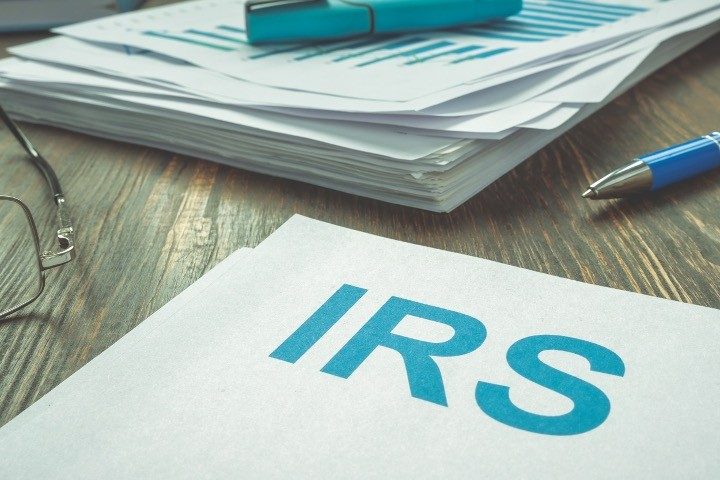
Thirty-one Republican senators cosponsored and reintroduced a bill on Wednesday that would ban the Internal Revenue Service (IRS) from conducting surveillance on the financial affairs of American taxpayers.
The Prohibiting IRS Financial Surveillance Act was originally introduced in 2021 as a response to President Biden’s proposed new requirements that would have directed the IRS to collect the private transaction information of virtually every American. The proposed rule would require banks to provide the IRS information about customer accounts with annual withdrawals or deposits above $600, affecting an estimated 100 million household and millions of business accounts. The new legislation will protect taxpayers by prohibiting such requirements from ever being implemented.
Current federal mandates under the Bank Secrecy Act require banks to report cash transactions above $10,000 to detect money laundering and other crimes. The rationale is that such thresholds are sufficiently high that they’re not likely to ensnare middle-income or lower-income individuals or businesses.
Lead cosponsors Senators John Boozman and Tom Cotton, both Arkansas Republicans, as well as Senate Finance Committee Ranking Member Mike Crapo (R-Idaho) and Senate Banking, Housing and Urban Affairs Committee Ranking Member Tim Scott (R-S.C.), introduced the legislation to prohibit the Treasury secretary from tracking “the inflows or outflows of any account maintained by such institution, or any balances, transactions, transfers, or similar information with respect to any such account.”
On Wednesday, Boozman said in a joint press release, “The IRS has failed to secure private information and often struggles to provide basic customer service to the millions of American taxpayers it’s accountable to and was designed to serve. It has no business attempting to monitor their every bank transaction and requiring financial institutions to turn over this data. Our bill would ensure the agency stays out of innocent Americans’ personal finances.”
“Under the Biden administration and progressive leadership, the IRS has proposed outrageous actions that threaten the privacy of American taxpayers. In light of this pattern, this legislation will prevent the IRS from taking future steps to encroach on the lives and finances of everyday Americans,” added Sen. Scott.
The National Association of Federally-Insured Credit Unions (NAFCU) wrote a letter Wednesday in support of the Prohibiting IRS Financial Surveillance Act to prohibit the IRS from “enacting this invasion of privacy into countless Americans’ daily lives. Financial institutions already face a robust reporting regime for financial transactions, such as 1099s, Currency Transaction Reports (CTRs), and Suspicious Activity Reports (SARs). At any threshold, requiring credit unions to report on gross inflows and outflows of accounts poses regulatory costs and challenges while threatening to reduce participation in financial services and invade the privacy of hundreds of millions.”
The Treasury Department published a fact sheet in response to Biden’s proposed reforms that have “been subject to widespread mischaracterization.”
Per that fact sheet:
One prominent misconception concerns whether banks will have to report individual transactions to the IRS.
To be clear: The financial reporting proposal does not include reporting on individual transactions of any amount. Instead, banks would add two additional data points to the information that is already supplied to tax the IRS: how much money went into the account over the course of the year, and how much came out.
The Epoch Times reported, “Biden administration officials defend the proposal as needed to enable the IRS to more effectively account for and collect levies on income received by wealthy individuals from sources other than those covered by Forms W-2 and 1099.”
The ostensible purpose of Biden’s proposed reporting requirements was to help stop tax evasion. The Epoch Times shared that “Federal tax officials estimate the cost of tax evasion among the top 1 percent of filers to be as much as $160 billion annually. Overall, administration officials contend the ‘tax gap’ — the difference between how much is owed in taxes by all filers and how much is actually paid — to be as much as $600 billion annually.”
Supporting the legislation, Sen. Crapo said in Wednesday’s statement, “Americans are justifiably concerned about providing sensitive customer data to the IRS, an agency with an extensive history of leaks, hacks and other violations of taxpayer confidentiality. They loudly rejected the IRS bank reporting dragnet when it was originally proposed, and this legislation will prevent the IRS from turning banks and credit unions into private investigators for law-abiding Americans.”
Taxation is theft. The sponsors of the Prohibiting IRS Financial Surveillance Act appear to be taking a stand to protect American taxpayers, and this bill is a step in the right direction. What is ultimately needed is to end federal income taxes altogether and put an end to the Federal Reserve, so that all Americans would have a decent chance at living better lives.
The bill is also cosponsored by Senators John Barrasso (R-Wyo.), Cynthia Lummis (R-Wyo.), Marsha Blackburn (R-Tenn.), Bill Hagerty (R-Tenn.), Mike Braun (R-Ind.), Todd Young (R-Ind.), Bill Cassidy (R-La.), John Kennedy (R-La.), Susan Collins (R-Maine), John Cornyn (R-Texas), Ted Cruz (R-Texas), Steve Daines (R-Mont.), Joni Ernst (R-Iowa), Chuck Grassley (R-Iowa), Lindsey Graham (R-S.C.), John Hoeven (R-N.D.), Ron Johnson (R-Wis.), James Lankford (R-Okla.), Roger Marshall (R-Kan.), Jerry Moran (R-Kan.), Rand Paul (R-Ky.), James Risch (R-Idaho), Mike Rounds (R-S.D.), John Thune (R-S.D.), Rick Scott (R-Fla.), JD Vance (R-Ohio), and Roger Wicker (R-Miss.).




